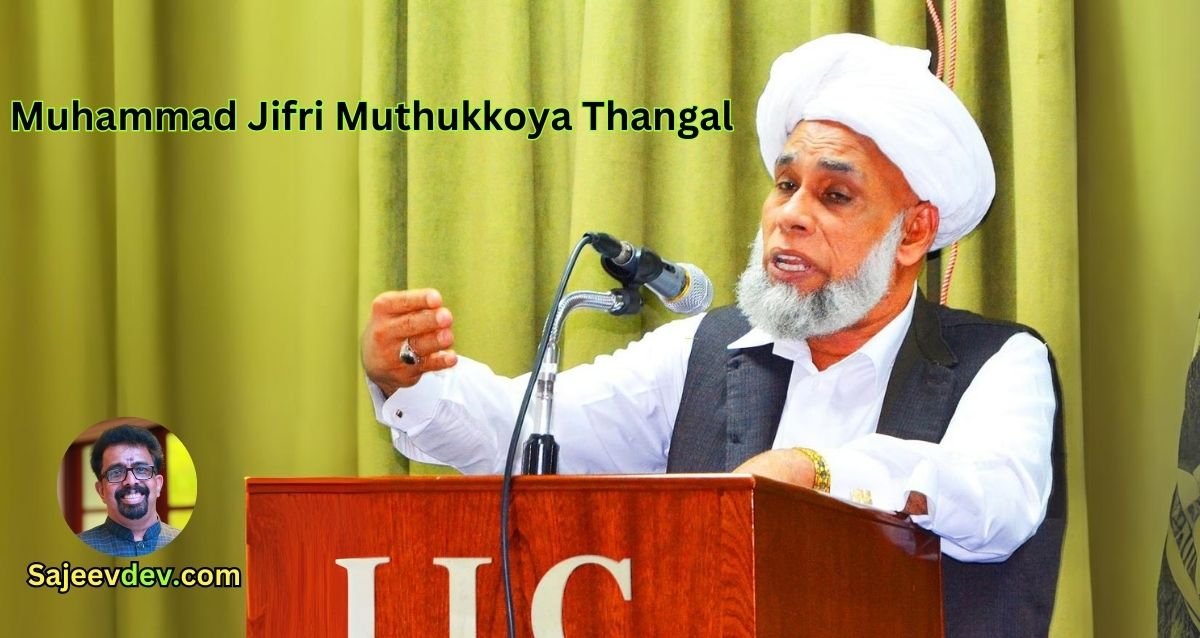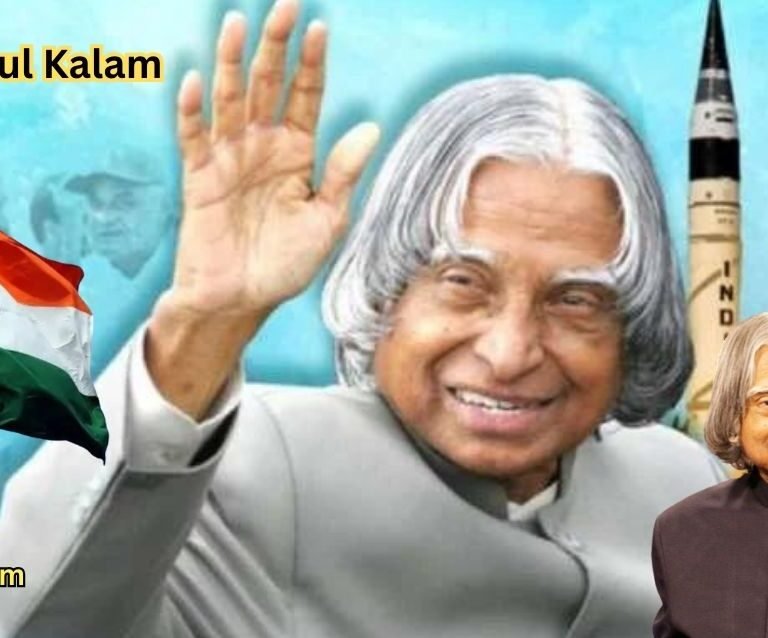Early Life and Family Background
Jifri Muthukkoya was born in March 1957 at Matrbhavanam in Irumpuchola, a serene village nestled within the Malappuram district of Kerala. His esteemed lineage situates him within the revered Jiffiri family, a household illustriously known for its contributions to Islamic scholarship and social leadership. The cultural environment of his early years was steeped in traditional values and scholarly pursuits, attributes that significantly influenced his formative years.
His father, Sayed Husain Jifri Pookunjikkoya Thangal, was a distinguished scholar and community leader, while his mother, Fathima Cheri Biwi Jamalullaili, provided a nurturing and supportive upbringing. The intertwining of erudition and piety in his family created a milieu that fostered his intellectual and spiritual growth. This background is emblematic of the Jiffiri family’s commitment to the dissemination of Sunni Islamic teachings in Kerala.
Tracing his ancestral roots, the legacy of the Jiffiri family dates back to Syed Hussein Jiffiri, who migrated from Yemen to India in 1823. Upon settling in Kerala, Syed Hussein played a pivotal role in the propagation of Islamic knowledge and the establishment of several institutions that continue to uphold Sunni scholarship to this day. This heritage bequeathed a sense of duty and an indelible commitment to the community, which were imprinted on the young Jifri Muthukkoya.
Growing up in such an environment, Jifri Muthukkoya was enveloped in a world where education and spiritual growth were paramount. The profound influence of his family instilled in him a deep appreciation for Islamic jurisprudence and scholarship. This nurturing foundation paved the way for his eventual emergence as a formidable figure in Sunni scholarship, continuing the legacy of his forebears who had arduously worked to enrich the spiritual and educational landscape of Kerala.
Personal Life
Jifri Muthukkoya’s personal life was deeply intertwined with his scholarly and communal responsibilities, offering insights into the man behind the revered figure. His marriage to Fathwimath Muth Biwi, the daughter of S.K.K Thangal Jamalullaili from Chemmad Kariparamba, was not merely a union of love but also one of prestigious familial ties. Through this marriage, Muthukkoya formed a significant alliance that fostered intellectual and cultural exchanges, enriching his scholarly pursuits.
Together, Jifri Muthukkoya and Fathwimath Muth Biwi raised three children: Jafar Swadiq Thangal, Twaha Hussain, and Najwa Jifri. As a father, Muthukkoya instilled in his children the values of education, humility, and service. His household was a nurturing environment where academic discourse and spiritual guidance flourished, preparing his progeny to uphold his intellectual legacy and ethical standards.
Family life for Jifri Muthukkoya was not merely a private affair but an extension of his public duties. His relationships within the family helped shape his character, allowing him to approach his social and academic endeavors with empathy and a deep sense of responsibility. Fathwimath Muth Biwi, known for her wisdom and support, was a steadfast partner who complemented Muthukkoya’s scholarly endeavors, providing a balanced family life that was both intellectually stimulating and emotionally grounding.
Moreover, the familial environment encouraged dialogue on various topics, ranging from theology to social justice, further enriching Muthukkoya’s perspectives. This harmonious blend of personal and professional life contributed significantly to his development as a community leader and scholar. His ability to leverage personal relationships for communal betterment stands as a testament to how his family played a pivotal role in shaping his legacy.
Education and Religious Training
Jifri Muthukkoya’s educational journey is a testament to his dedication to acquiring deep religious and scholarly expertise. His early education commenced in his hometown, where he was extensively tutored in basic Islamic texts and principles. This foundational stage was pivotal, laying the groundwork for his later scholarly accomplishments. As a young student, he was noted for his exceptional grasp of the Quran and Hadith, showcasing a keen intellect and profound interest in Islamic sciences.
His quest for knowledge led him to prominent institutions renowned for their rich tradition in Islamic learning. One of the key stages in his educational journey was at the illustrious Darul Uloom, where he acquired robust training in various Islamic disciplines. Under the guidance of revered scholars, Jifri Muthukkoya honed his skills in Fiqh (Islamic jurisprudence), Tafsir (Quranic exegesis), and Hadith studies. These esteemed mentors not only imparted knowledge but also instilled in him a deep appreciation for the nuances of Islamic scholarship.
Among his influential teachers was Sheikh Abdul Qadir, a luminary in the field of Islamic jurisprudence. Sheikh Abdul Qadir’s profound influence is evident in Muthukkoya’s meticulous approach to religious debates and interpretations. Another significant mentor was Ustadh Ahmed Fayaz, known for his erudition in Hadith studies. Fayaz’s rigorous academic discipline and emphasis on critical analysis were instrumental in shaping Muthukkoya’s scholarly pursuits.
The traditional Islamic learning that Muthukkoya received was foundational in his formative years, providing a rich, contextual backdrop that influenced his later works and public engagements. This traditional training not only enriched his understanding but also imbued his teachings with authenticity and a deep respect for classical Islamic scholarship. It was this blend of rigorous academic training and spiritual grounding that equipped Jifri Muthukkoya to become a leading figure in Sunni scholarship in Kerala, influencing generations of students and scholars alike.
Role in Samastha Kerala Jem-iyyathul Ulama
Jifri Muthukkoya played a pivotal role in the Samastha Kerala Jem-iyyathul Ulama, an esteemed organization of Sunni scholars in Kerala. Founded in 1926, the organization’s primary objectives include the preservation and promotion of Sunni Islamic traditions, particularly in the realm of religious education, moral upbringing, and community welfare. Through decades of dedicated service, Jifri Muthukkoya significantly shaped these objectives into actionable policies and initiatives, bringing about substantial reforms.
As a senior figure within Samastha, Jifri Muthukkoya assumed numerous responsibilities that spanned from administrative duties to scholarly endeavors. He was instrumental in standardizing the curriculum for various religious educational institutions under the organization’s umbrella, ensuring that the quality of education remained consistent and thorough. His efforts in this area helped maintain a robust educational structure that catered to the spiritual and academic needs of the Muslim community in Kerala.
Moreover, Jifri Muthukkoya advocated for the establishment of new religious schools and seminaries, which provided access to Islamic education for students in rural and underprivileged areas. This initiative not only facilitated educational inclusivity but also strengthened the community’s cohesion around shared religious values and practices. Under his leadership, the organization saw the growth of numerous institutions that now stand as pillars of Sunni scholarship in the region.
His contributions also included significant reforms aimed at community welfare. Jifri Muthukkoya was a staunch supporter of social justice and worked tirelessly to address issues such as poverty, healthcare, and communal harmony through various charitable programs. These programs were often centered around inclusive growth, encouraging the participation of all community members to achieve a collective betterment.
In summary, Jifri Muthukkoya’s legacy within Samastha Kerala Jem-iyyathul Ulama is marked by a harmonious blend of educational reforms and community welfare initiatives. His impact continues to resonate in Kerala’s Sunni community, exemplified by the thriving institutions and empowered individuals who benefit from the groundwork he established.
Principal of Joint Muslim Jamaat Qasi and Arabic College
Jifri Muthukkoya’s tenure as the principal of the Joint Muslim Jamaat Qasi and Arabic College marked a significant chapter in the history of Sunni scholarship in Kerala. His administration was characterized by a commitment to academic excellence and spiritual enrichment, ensuring that both educators and students alike thrived in a nurturing and intellectually stimulating environment.
Under Muthukkoya’s leadership, the college saw a series of transformative changes aimed at enhancing the quality of education and the overall functioning of the various departments. He introduced several progressive educational philosophies that emphasized a balanced approach between traditional Islamic teachings and contemporary academic disciplines. By integrating these diverse elements, Muthukkoya aspired to produce well-rounded scholars equipped to address the multifaceted challenges of the modern world while remaining rooted in their religious principles.
One of the core aspects of his administrative approach was the overhaul of the curriculum, which now included a broader range of subjects. This not only broadened the academic horizon of the students but also enabled them to gain a deeper understanding of the diverse facets of Islam and its practical applications in daily life. Furthermore, Muthukkoya ensured that the faculty had access to continuous professional development opportunities, thus fostering an environment of perpetual learning and growth.
Muthukkoya’s leadership also brought about several infrastructural improvements within the institution. Classrooms were modernized, and new facilities were introduced to cater to the growing needs of the student body. This not only enhanced the learning experience but also attracted a more diverse group of students and faculty, further enriching the academic and spiritual fabric of the college.
His tenure as principal culminated in the institution being recognized as a beacon of Sunni scholarship, known for its rigorous academic standards and profound spiritual teachings. Jifri Muthukkoya’s contributions during this period left a lasting legacy that continues to inspire and guide future generations of scholars and educators.
Contributions to the Community
Muthukkoya’s commitment to societal welfare transcended his formal organizational roles, making a profound impact on communities both locally in Malappuram and across Kerala. One of his notable ventures was in the realm of education. Understanding the transformative power of knowledge, he spearheaded initiatives to build schools and educational institutions, ensuring accessible education for all, particularly in underserved regions. His emphasis on high-quality Islamic and general education fostered an environment where students could develop holistically, embracing both spiritual and worldly knowledge.
Another pivotal aspect of Jifri Muthukkoya’s contributions lay in his steadfast advocacy for social justice. He championed the rights of the marginalized and oppressed, consistently voicing concerns over social inequalities. His efforts included providing legal aid and support to those unjustly treated, ensuring that equitable justice remained a cornerstone of societal framework. His leadership in this domain inspired many to adopt a similar stance, gradually cultivating a more just and fair community.
Charitable activities formed another significant dimension of Muthukkoya’s humanitarian work. He organized and contributed to an array of charitable endeavors, ranging from healthcare provisioning to disaster relief. His initiatives often extended beyond immediate assistance, with sustainable projects designed to empower communities economically. Examples include establishing healthcare clinics, vocational training centers, and micro-financing programs, which collectively enhanced the quality of life and economic prosperity of numerous families in Kerala.
Particularly in Malappuram, his legacy is visible through countless personal stories of upliftment and support. Many individuals recount how Muthukkoya’s efforts provided them with educational scholarships, medical treatment, or the means to start a business, thereby altering their life trajectories for the better. His holistic approach to community service not only addressed immediate needs but also laid a foundation for enduring self-sufficiency and development.
Through these multifaceted initiatives, Jifri Muthukkoya transformed lives and built stronger, more resilient communities, leaving an indelible mark on Kerala society. His work stands as a testament to the profound impact that dedicated service and compassionate leadership can achieve.
Legacy and Influence
Jifri Muthukkoya’s enduring legacy is deeply etched into the social, religious, and educational fabric of Kerala. His commitment to Sunni scholarship has inspired a multitude of scholars, students, and community members, creating a ripple effect that continues to influence contemporary and future generations. His teachings, which seamlessly integrated traditional religious knowledge with modern educational practices, have set a benchmark for Islamic scholarship in the region.
One cannot overlook the profound impact of Muthukkoya’s leadership and service in the community. His efforts in promoting education, especially religious education, have ushered in an era of scholarly pursuit among young Keralites. Institutions that were under his guidance emphasized not just academic excellence but also moral and ethical development, positioning them as pillars of holistic education.
Testimonials from his students and fellow scholars reflect the deep admiration and respect they hold for Muthukkoya. Dr. Ahmed Ali, a noted scholar, notes, “Muthukkoya’s approach to education and community service transcended conventional methods. He instilled a sense of purpose and dedication in his students that is visible in their contributions to society today.” Similarly, many community members recall his efforts in resolving social issues and providing guidance, making him a beacon of wisdom and compassion.
The influence of his work is evident in the continued relevance of his teachings. The principles he stood for, such as tolerance, empathy, and an unyielding quest for knowledge, resonate in various social and educational reforms across Kerala. His legacy is particularly apparent in how modern Islamic educational institutions are structured and in the community’s approach to religious and social harmony.
Through Muthukkoya’s extensive contributions, Kerala’s Sunni scholarship has found a firm foundation, ensuring that his legacy will continue to inspire generations to come. His life’s work exemplifies how one individual’s dedication can leave an indelible mark on society, shaping it in profound ways for the future.
A cornerstone of Sunni scholarship
Jifri Muthukkoya’s journey from humble beginnings to becoming a cornerstone of Sunni scholarship in Kerala is a testament to his unwavering dedication and profound influence. From his early life, marked by rigorous study and perseverance, Muthukkoya laid the foundation for a life of scholarly and spiritual leadership. His contributions to religious education, community upliftment, and the preservation of Sunni traditions cannot be overstated, defining him as a pivotal figure in Kerala’s religious history.
Through his scholarly works and teachings, Muthukkoya bridged gaps between traditional religious practices and contemporary issues, offering a pathway grounded in faith and contextually relevant wisdom. His efforts were not confined merely to academic circles but extended to grassroots levels, impacting communities and fostering social cohesion. The educational institutions and initiatives he pioneered continue to thrive, reflecting his enduring legacy.
Reflecting on his life, it’s clear that Muthukkoya’s legacy offers invaluable lessons for contemporary society. In an era marked by rapid change and frequent ideological clashes, his emphasis on knowledge, compassion, and community service remains profoundly relevant. Muthukkoya’s life encourages us to value continuous learning, strive for mutual understanding, and prioritize the welfare of the community. His ability to harmonize deep-seated traditions with modern realities serves as an exemplary model for current and future generations.
One of his well-known quotes, “The essence of knowledge is to share it for the benefit of all,” encapsulates his philosophy. His personification of humility and intellect serves as an inspiration and a guiding light in the modern discourse on religious and cultural identity. As we reflect on Jifri Muthukkoya’s significant contributions, it becomes clear that his impact will resonate for generations, fostering an environment of enriched scholarship, enduring faith, and communal harmony.









